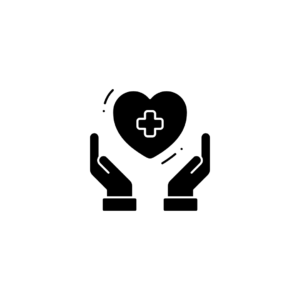Description
Overview of Diploma in Vocation (D.Voc) in Health Inspector
The Diploma in Vocation (D.Voc) in Health Inspector program is designed to equip students with the knowledge and skills necessary to ensure public health safety and hygiene standards in various environments, such as food establishments, hospitals, and community health settings. This program combines theoretical knowledge with practical training, focusing on inspection protocols, health regulations, and preventive health measures.
Core Areas of Study in D.Voc in Health Inspector
Introduction to Public Health
Understanding the principles of public health, including the importance of health promotion, disease prevention, and community health management.
Health and Hygiene Standards
Learning about the standards and regulations that govern sanitation, hygiene, and health practices in public and private organizations.
Food Safety and Inspection
Gaining knowledge of foodborne illnesses, safe food handling practices, and techniques for inspecting food establishments.
Environmental Health
Exploring environmental factors affecting public health, including air and water quality, waste management, and pollution control.
Epidemiology
Understanding the study of disease distribution and determinants in populations, along with methods for investigating outbreaks and health trends.
Occupational Health and Safety
Learning about workplace regulations and practices to prevent health hazards and ensure a safe working environment.
Inspection Techniques and Reporting
Developing skills in conducting health inspections, documenting findings, and preparing reports for compliance and regulatory purposes.
Emergency Preparedness and Response
Understanding protocols for responding to public health emergencies, including disease outbreaks and natural disasters.
Curriculum Structure
A typical D.Voc in Health Inspector program may include:
Core Courses: Theoretical and practical courses covering public health, sanitation, food safety, and inspection protocols.
Field Training: Hands-on experience through internships or cooperative education placements in health departments, food safety organizations, or public health agencies.
Workshops and Seminars: Opportunities to engage with industry professionals and stay updated on current health issues and practices.
Admission Requirements
Admission to the D.Voc in Health Inspector program generally involves:
A high school diploma (or equivalent), preferably with a background in science or health-related subjects.
Some institutions may require an entrance exam or interview to assess a candidate’s interest and aptitude for health inspection.
Skills Developed in the D.Voc in Health Inspector Program
Graduates of the Diploma in Vocation in Health Inspector will acquire essential skills, including:
Analytical Skills: Ability to assess health and sanitation conditions critically and identify areas for improvement.
Attention to Detail: Strong focus on assessing compliance with health regulations and standards during inspections.
Communication Skills: Proficiency in effectively communicating findings and recommendations to various stakeholders, including business owners and the public.
Problem-Solving Abilities: Skills to develop solutions and strategies for improving public health safety and preventing health issues.
Technical Knowledge: Understanding of health inspection tools, techniques, and standards applicable to various environments.
Career Opportunities
Upon completion of the D.Voc in Health Inspector program, graduates can pursue various career paths, including:
Health Inspector
Conducting inspections of food establishments, hospitals, and other facilities to ensure compliance with health regulations.
Sanitarian
Focusing on environmental health issues, including waste management, air quality, and public health education.
Public Health Officer
Working with government agencies to monitor health trends, implement health programs, and respond to public health concerns.
Food Safety Specialist
Ensuring food safety standards in restaurants, catering services, and food processing companies.
Occupational Health and Safety Officer
Overseeing workplace health and safety protocols, conducting risk assessments, and implementing prevention strategies.
Conclusion
The Diploma in Vocation in Health Inspector program prepares students for vital roles in ensuring public health and safety. By combining theoretical knowledge with practical experience, graduates are equipped to navigate the complexities of health regulations and contribute to community health improvement. If you have any further questions about the D.Voc in Health Inspector or related topics, feel free to ask!









